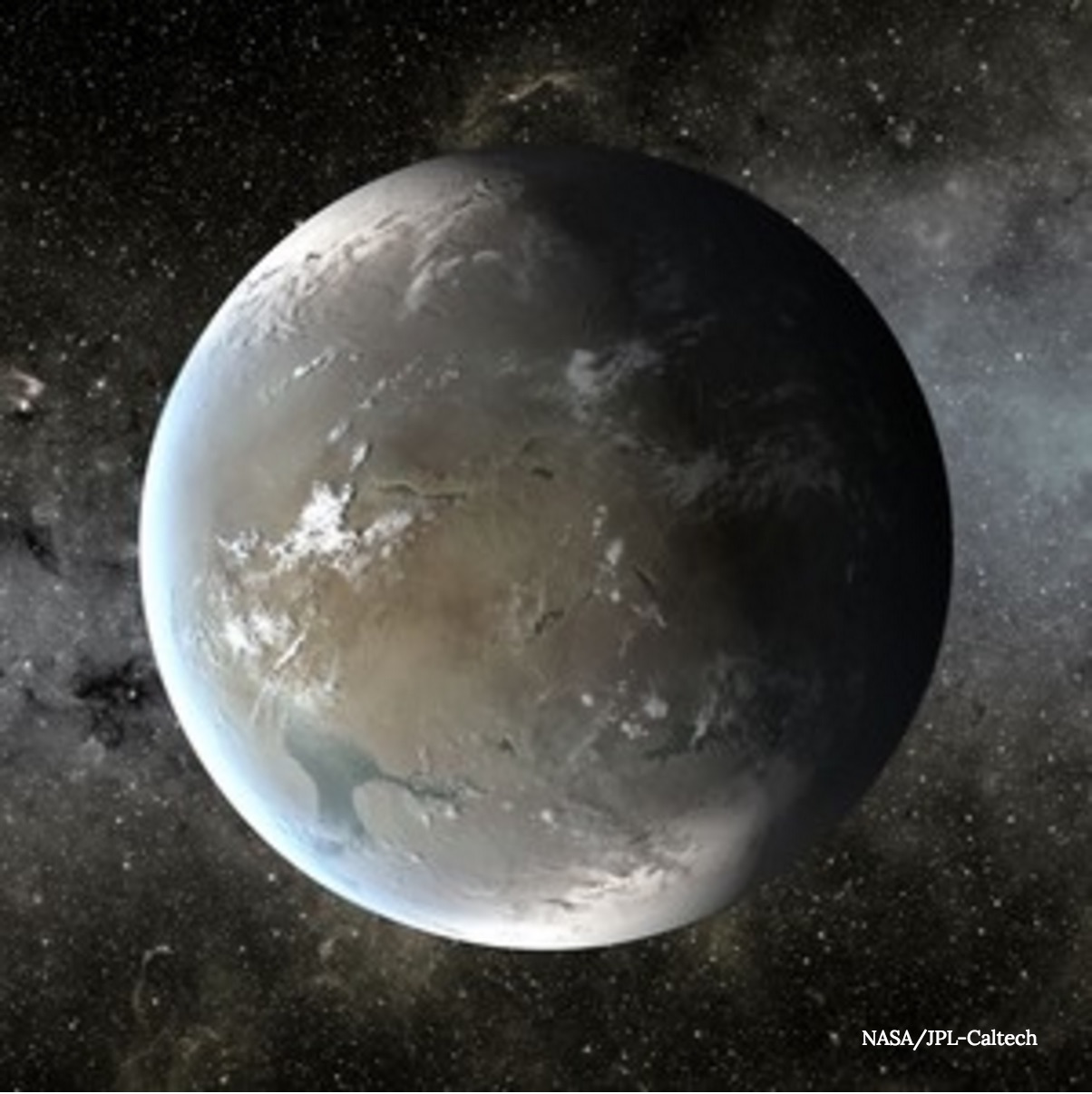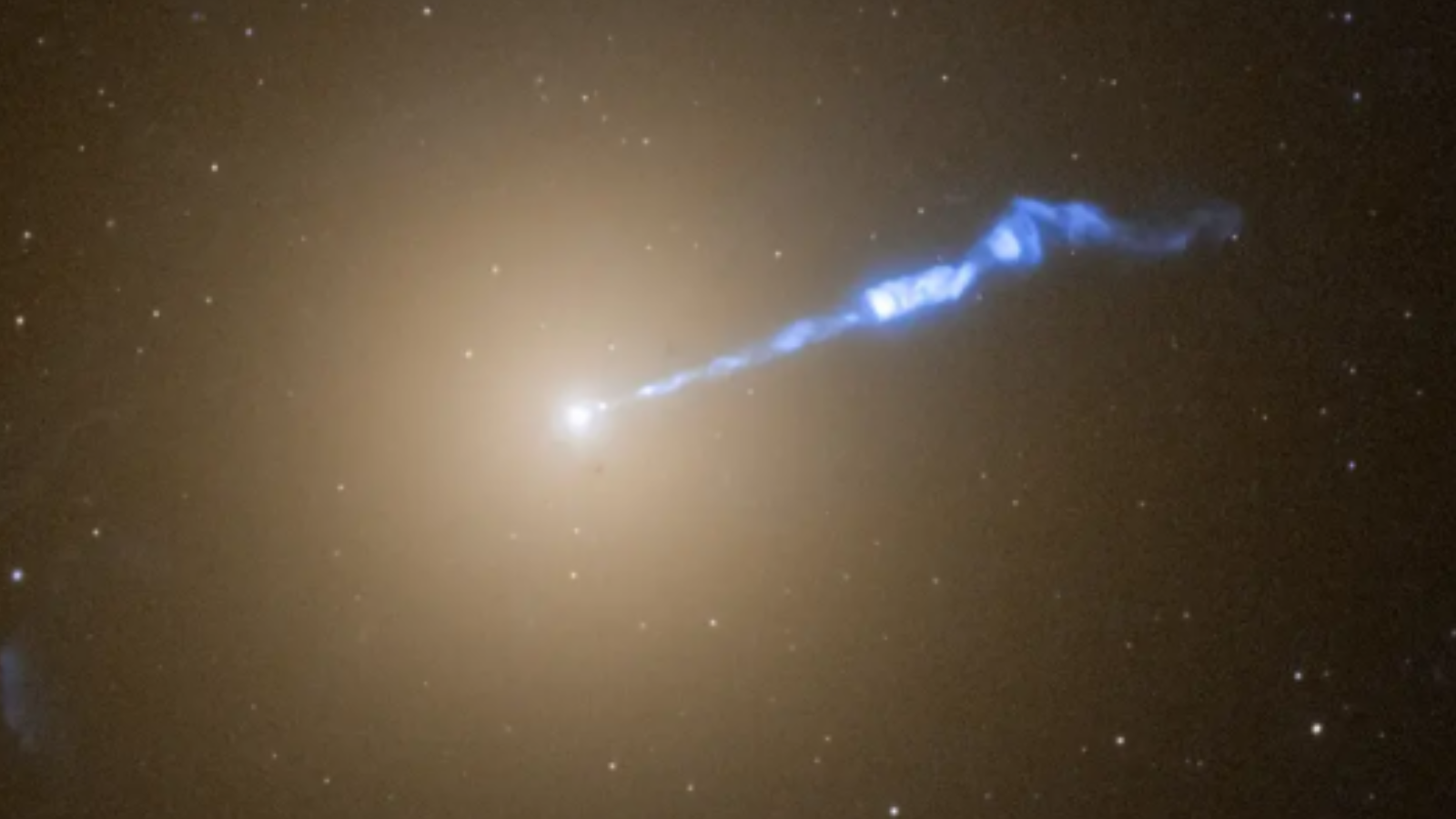Distant Rocky World Could Be Friendly for Life

In good news for alien-seekers, scientists have come up with more evidence that a distant rocky world is likely habitable — even given a range of atmospheric conditions.
Kepler-62f was announced in 2013 as the smallest "habitable zone" planet ever found at that time. It's just 40 percent larger than Earth and lives about 1,200 light-years away in the Lyra constellation. It was discovered by the Kepler space telescope, but not much is known yet about the shape of its orbit (this likely requires more telescope time to figure out).
ANALYSIS: Kepler-62 is a Ripe SETI Target
The "habitable zone" is usually defined as the region nearby a star where liquid water was possible. But this depends on several factors, such as how much heat the star emits, the orbit of the planet and what the atmospheric composition of the planet's atmosphere is. Luckily for Kepler-62f, scientists found there are a range of scenarios where Kepler-62f stays habitable.
"We found there are multiple atmospheric compositions that allow it to be warm enough to have surface liquid water," said lead author Aomawa Shields, a University of California postdoctoral program fellow, in a statement. "This makes it a strong candidate for a habitable planet."
For the planet to remain habitable throughout its orbital journey, the researchers estimate it needs to have an atmosphere three to five times thicker than Earth's, and made up of carbon dioxide. It's possible for Kepler-62f to be this way because it is far from the star, allowing the gas to fill up in the atmosphere from sources such as volcanoes. The caveat is somehow the planet needs to generate lots of the gas.
ANALYSIS: Earth-Likenesses: Have We Discovered Earth 2.0?
Breaking space news, the latest updates on rocket launches, skywatching events and more!
Other scenarios could also be habitable, the authors said. This includes atmospheres ranging in thickness from Earth-like to 12-times thicker than Earth; carbon dioxide ranging from the same as Earth to 2,500 times Earth's proportions; and several orbital configurations.
"This will help us understand how likely certain planets are to be habitable over a wide range of factors, for which we don't yet have data from telescopes," Shields added. "And it will allow us to generate a prioritized list of targets to follow up on more closely with the next generation of telescopes that can look for the atmospheric fingerprints of life on another world."
The research was published in the journal Astrobiology.
Originally published on Discovery News.

Elizabeth Howell (she/her), Ph.D., was a staff writer in the spaceflight channel between 2022 and 2024 specializing in Canadian space news. She was contributing writer for Space.com for 10 years from 2012 to 2024. Elizabeth's reporting includes multiple exclusives with the White House, leading world coverage about a lost-and-found space tomato on the International Space Station, witnessing five human spaceflight launches on two continents, flying parabolic, working inside a spacesuit, and participating in a simulated Mars mission. Her latest book, "Why Am I Taller?" (ECW Press, 2022) is co-written with astronaut Dave Williams.
